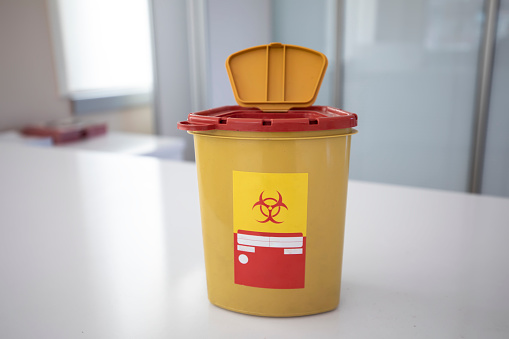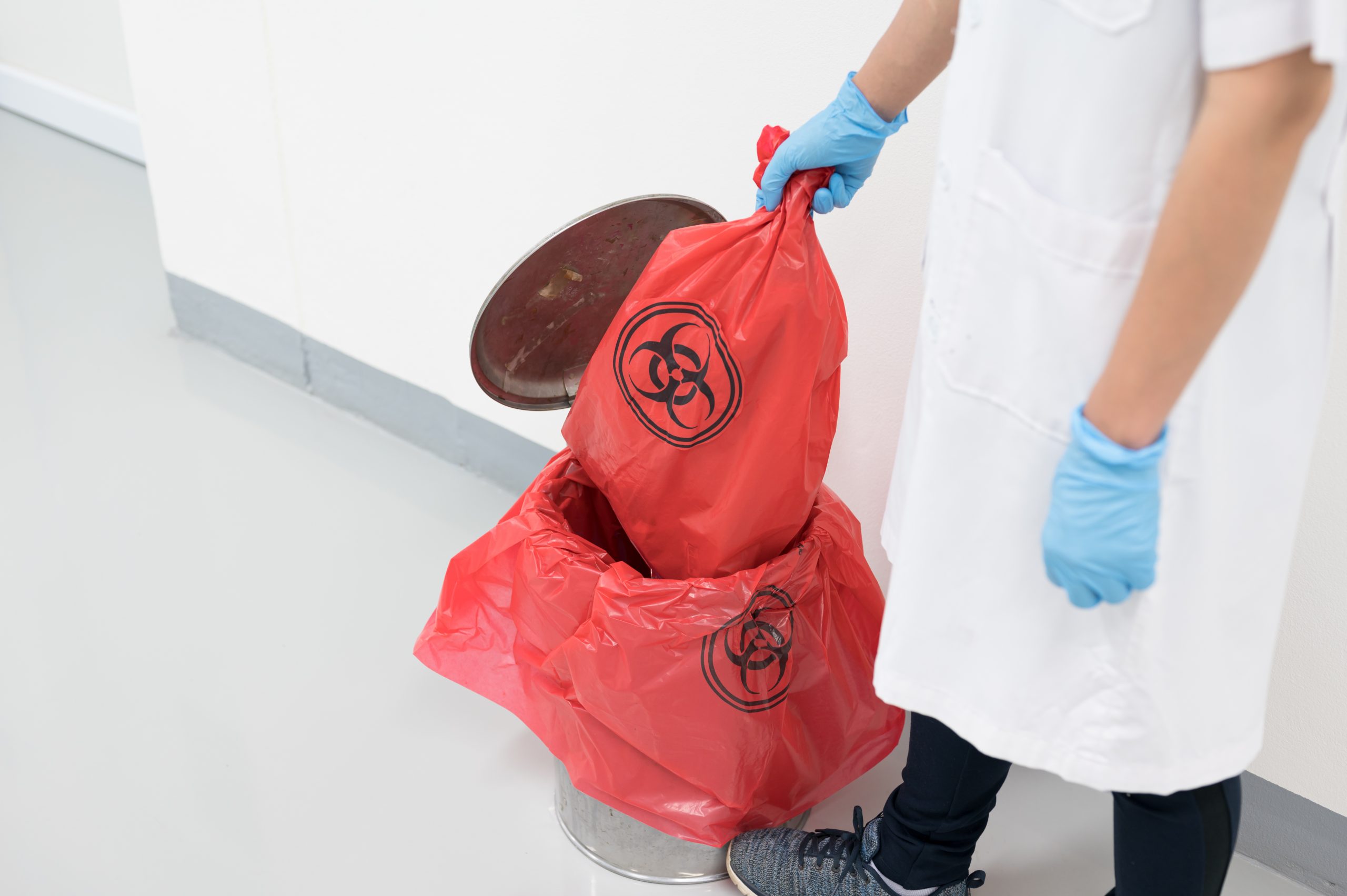The healthcare industry generates a large amount of clinical waste that must be controlled and removed in a secure and legal way.
But what are the primary indicators of performance (KPIs) you must be tracking to ensure that your professional waste disposal system is working?
In this blog we will look at the four primary disposals of clinical waste management facilities KPIs you need to monitor to ensure that your clinical waste management system is in good shape.
From the total amount of waste produced to the treatment cost and more, learn more about measuring the effectiveness of your waste management program.
KPIs for Clinical Waste
There are some crucial performance indicators (KPIs) that are essential to take into consideration when managing the disposal of clinical waste.
The first is the amount of medical waste that is recycled and removed from landfills. This is a crucial metric to keep track of because it indicates how your facility is performing in recycling and repurposing medical waste.
The other KPI can be measure as the value per ton of medical waste that is dispose. This measure can allow you to determine how effective your disposal strategies are and whether you can save money by making adjustments.
The third KPI is the amount of clinical waste produced per day for each patient. This measure will help you determine patterns in waste production and help you identify ways to reduce it.
How to Assess KPIS for Clinical Waste
There are several important Key Performance Indicators (KPIs) to consider in the field of medical waste disposal management. Some of the most significant ones are listed below:
1. The Compliance With Regulations
It is possibly the most vital KPI since it directly affects the safety of patients and personnel. Be sure that your clinic’s waste management system is in compliance with all applicable regulations.
2. Waste Volume
Another vital KPI is the quantity of waste from clinical use. This gives you an indicator of the efficiency your waste management process is and whether or not any adjustments have to be.
3. Waste Segregation
A well-functioning disposal of sharps process will guarantee that all waste materials are correctly separate. This ensures that non-hazardous and hazardous waste are separate and reduces the chance of contamination.
4. Cost
The disposal of clinical waste is expensive, which is why it’s essential to keep track of expenses carefully. This can help you find areas where savings can be achieve.
5. Patient Satisfaction
It is also important to gauge the level of satisfaction that patients have with the waste disposal system. If patients are not satisfie with the manner in which their waste is handle and dispose of, it can have an impact on their experience with care.

Different Software for Effectiveness Within Clinical Waste Management
There are a variety of clinical waste collections available to assist in removal of dental debris. Certain are more extensive than others; however all of them can aid in increasing efficiency and ensure compliance with regulations.
A popular choice is HER is, an online waste management system for clinical use. It offers features such as the online management for waste removal, notifications for the time when waste must be eliminate, as well as tools for reporting.
This software could help reduce the burden of the clinical process of managing waste and aid in tracking and monitoring progress.
Another useful tool can be in another useful tool is the Hazardous Waste Tracking System (HWTS). The software monitors hazardous waste that is generate until removal.
It also includes features such as manifests, barcoding, as well as real-time tracking. This software can ensure that any hazardous waste is appropriately monitor and eliminate according to guidelines.
In the end, the Clinical Waste Audit Toolkit (CWAT) is a toolkit on the web which helps facilities assess their practices in managing clinical waste.
It provides checklists, templates and guidelines regarding how you can conduct an efficient audit. This tool can assist in identifying areas where improvements could be made to improve the waste management procedure.
Why Medical Waste Management Company Can Help Your Bottom Line
If you’re a healthcare facility administrator or owner you’re aware that managing the disposal of clinical waste is a huge problem.
In addition to having to follow strict guidelines However, you also need to figure out methods to dispose of waste efficiently and safely. One method to enhance your waste management is by partnering with a company that manages medical waste.
Another way that a medical administration company can improve the bottom line of your business is by offering education and training for your employees.
They will ensure that your employees are up-to-date with the most recent regulations and how to properly dispose of waste from clinical facilities.
If you’re trying to improve your medical waste management and save money, joining forces with a medical management firm is an excellent alternative. They offer many advantages that will improve the bottom line of your business and help your facility run smoothly.
What are the Main Challenges in Waste Development?
The past was when the term “waste” was off as the leftovers from animal or human activities. It includes everything from manure and food scraps to industrial effluents and mining tailings.
As we’ve become more conscious of the effects of our daily activities on the world, the concept of waste becomes more difficult. The definition of waste today is as any substance that is remove from the environment and is not for other purposes.
Waste is generate by human activities; however it could also be derive from natural sources, such as volcanoes and power plants.
The disposal of waste is now an issue that is affecting the entire society. With the grow of populations and life expectancies have increase the quantity of waste that we produce has rise dramatically.
There are many issues that must be address to establish sustainable management methods for the disposal of waste. They include:
- Minimising how much trash we make in the first place
- Finding secure and efficient ways to dispose of garbage that is produced
- Recovering valuable materials that were discarded in products and reintroducing them to the economy
- Reduced emissions from waste management processes

Four Reasons to Use Clinical Waste Disposal is Essential
- The management of waste is crucial to ensure the health of the public.
- Improper disposal of waste can result in pollution to the environment.
- It is essential to reuse and recycle materials in order to preserve resources.
- A proper waste management system can help reduce costs.
Top Tips for Cleaning Up Your Waste in the Home Environment
As the volume of waste that is produce within the home environment grows It is crucial to ensure that medical waste is properly dispose.
Here are some of the best guidelines for disposing of medical waste within the home environment:
- All medical waste must be in a tightly tie red bag prior to being in a container that is suitable to be collect.
- Clinical waste containers must be clearly label with the words “Clinical Waste’.
- Do Not Place Hot Liquids or Ashes Into Waste Containers That are Used for Medical Purposes
- Do not overfill the medical waste containers. If they’re full, call your local authority to seek guidance on other arrangements.
This can cause various health issues such as cholera, diarrhoea, and dysentery. A proper waste management system can help avoid these issues by making sure that waste is removed correctly.
Countries in the developing world have much to gain by implementing sustainable waste management methods. Not only will it help to safeguard the environment as well as the health of people, but it may also help create jobs.
Conclusion
There are numerous aspects to take into consideration when selecting the appropriate hospital waste disposal for your waste management system.
One of the most crucial things is to choose KPIs which will allow you to evaluate and enhance the performance of the system.
The most significant KPIs that are essential to the management of clinical waste include:
Recycling rates, Treatment turnaround times, Hospital infections rates by monitoring these KPIs you can make sure that your waste management system is functioning smoothly and effectively.

